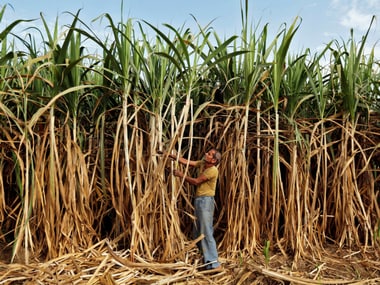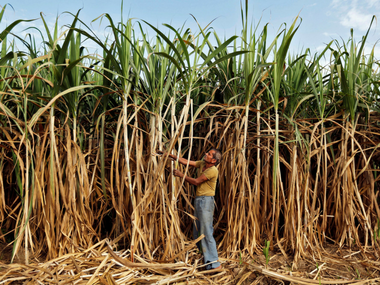The sugar industry in Maharashtra is in a state of crisis as several mills are struggling to pay sugarcane farmers in state. The situation has mounted amid the crushing season, which goes on till March. By 31 December, 2018 sugar mills in Maharashtra should have paid the farmers Rs 7,450.9 crore for cane at the “fair and remunerative price” or FRP, according to the state government’s Commissionerate of Sugar. However, mills in the state only managed to pay 39 percent (Rs 2,875.37 crore) of the dues, with Rs 4,575.53 crore left as arrears. The Sugarcane Control Order says that the FRP should to be paid within 15 days of buying cane from the farmer. Till 15 December, last year Rs 1,469.49 crore had been paid to the farmers as FRP. Why did the outstandings accumulate? Poor profit margin has been associated with the current sugarcane payment crisis. In simpler words, the factories are, mainly, unable to pay the farmers due to the declining sugar price. [caption id=“attachment_4950481” align=“alignleft” width=“380”]  Representational image. Reuters.[/caption] The Indian Express quoted the chairman of a leading Kolhapur-based cooperative sugar mill as saying: “Normally, we pay the FRP as a first instalment to farmers within 14 days of their supplying cane. Depending upon the factory’s earnings from sugar and by-products, they get a second payment close to the end of the crushing period and a third before Diwali. This is the first time we haven’t been able to pay even the first instalment.” The Centre had set Rs 245 per quintal as FRP for the 2018-19 season, but, according to the report, is somewhere around Rs 280 to 300 per quintal in southern Maharashtra. The chairman further said in the report that the farmers did not agree to a proposal put forward by millers on splitting the FRP to pay Rs 230 first and the balance amount during Diwali season. Business Standard reported that surplus of sugar in international market was among the reasons for the build up of outstandings. All India Sugar Trade Association chief executive officer RP Bhagria claimed in the report the short margin issue was affecting sugar exports “to a large extent”. The short margin norm is when the sugar prices fail to cover advances extended to mills by banks. Need for action On 1 January, Swabhimani Shetkari Sanghatana leader Raju Shetti lashed out at chief minister Devendra Fadnavis and said that the sugarcane farmers would launch a “halla bol” agitation if the properties of sugar mills defaulting on payments to farmers were not seized by 28 January, The Times of India reported. A delegation led by Shetti had submitted a memorandum to the commissionerate on 24 December, demanding action against mills which had failed to pay the dues to farmers within the 14-day bracket. Sugar deputy commissioner at Kolhapur division Sachin Rawal was quoted as saying in the report that when the authorities held hearings for 29 sugar mills, the millers said that they were neither able to sell sugar in the market nor were the banks giving then loan to pay the arrears. Union minister Nitin Gadkari recently advised farmers to stop cultivating sugarcane or use their produce for ethanol production instead of sugar. However, the government is yet to find an actual solution to the crisis. In December, former Union agriculture minister Sharad Pawar demanded a package of Rs 500 crore for the state’s sugar industry to clear the payments. “To ensure that farmers get FRP for cane, we will back the industry in every possible way,” he was quoted as saying by Economic Times. The sugar sector affects the livelihood of about five crore sugarcane farmers, and around five lakh workers employed in sugar mills in India. The situation in Maharashtra is similar to that in Uttar Pradesh, where mills are yet to pay Rs 1,770.18 crore to sugarcane farmers in the 2017-18 season (October-September).
Sugar mills in Maharashtra only managed to pay 39 percent (Rs 2,875.37 crore) of the farmer dues by 31 December, with Rs 4,575.53 crore left as arrears.
Advertisement
End of Article


)

)
)
)
)
)
)
)
)



